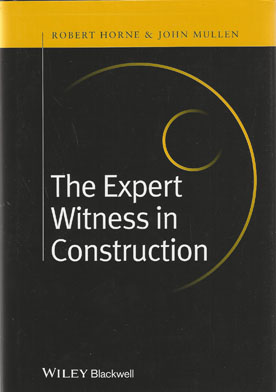
The role of the expert witness has long been important in the resolution of construction disputes. The specialist opinion brought by the expert can aid understanding and interpretation of the facts of the dispute, and may be influential in deciding the outcome.
The variety of dispute resolution procedures and the requirement for the expert witness to be independent places a heavy burden on the parties to identify and instruct an appropriate expert, and on the expert to ensure they discharge their duty in the correct manner.
The Expert Witness in Construction explains, in practical terms, the way in which experts work with particular reference to the construction industry. Within this book the Expert's role is explained in legal and practical terms as a progression from understanding the basic principles by which Experts can be identified, through appointment, to giving evidence before a tribunal. At every stage commentary is given to:-
Written by a practicing lawyer and a consultant with extensive experience of acting as an expert witness, the requirements of both the lawyer and expert are discussed. As such, it will help both parties to understand each other resulting in a closer, more productive working relationship.